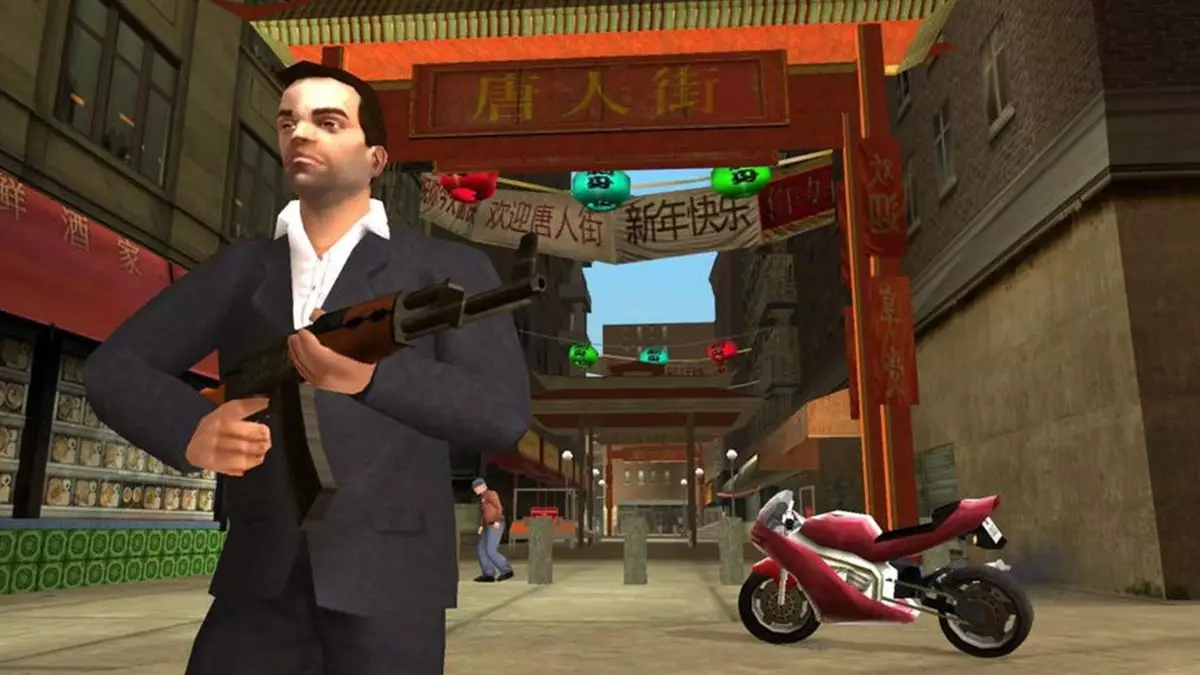The launch of Grand Theft Auto: The Trilogy – The Definitive Edition in 2021 was marred by controversies that tarnished its legacy. Gamers were left disappointed by a product that failed to meet even the most basic expectations of quality and performance. While it’s undeniable that the initial reception of the trilogy was predominantly negative, it’s crucial to note that Rockstar Games did not abandon their vision for these modern adaptations. After a grueling three-year struggle, the company finally delivered a patchy product that addressed some issues, even if many players had already moved on. Amid this chaos, anticipation for GTA 6 remains palpable, with speculation about its 2025 release swirling around like a tempest, leaving fans yearning for a nostalgic return to the franchise’s earlier successes.
In this context of uncertainty, it is worth reminiscing about two overlooked titles from the franchise’s handheld history: Grand Theft Auto: Liberty City Stories and Grand Theft Auto: Vice City Stories. Released in 2005 and 2006, respectively, these games pushed the boundaries of what was possible on the PlayStation Portable (PSP), achieving the almost impossible—bringing expansive 3D environments to a handheld format. When they were first announced, it seemed a ludicrous proposition, yet Rockstar succeeded in delivering experiences that were not merely scaled-down versions of beloved console titles. These games introduced new narratives, characters, and gameplay mechanics, enriching the environments and the overarching storyline of the GTA universe.
Both titles served as prequels to their major console counterparts, and rather than being perceived as less impactful, they stand as commendable entries in the franchise. The absence of these games in contemporary discourse reflects a broader issue within gaming culture—the neglect of preservation for important titles in favor of focusing solely on the latest releases. The ongoing mission of Rockstar, particularly with attempts to suppress fan-made ports, speaks volumes about the community’s insatiable craving for revisiting past glories. Yet, it sparks an essential conversation about respecting the history of video games by revamping forgotten classics for modern audiences.
Liberty City Stories and Vice City Stories were not just additional content; they represented a significant evolution in gameplay mechanics at a time when innovation was vital. For instance, LCS introduced motorcycles and enhanced character customization options—an evolution that significantly widened the scope of player interaction compared to GTA 3. Moreover, VCS expanded on air vehicles, a feature previously absent in earlier titles, making movement within the game world much more dynamic. The compelling narrative arcs of characters like Toni Cipriani and Vic Vance further established these games as crucial pieces of the larger matrix that constitutes the Grand Theft Auto narrative.
Contrary to the widely held belief that the franchise caters solely to chaos and destruction, there lies a rich tapestry of storytelling layered within these games. Dan Houser and his team ensured that each title contributes meaningfully to the overarching narrative, exploring complex relationships and personal struggles set against the backdrop of crime-laden landscapes. The neglect of these stories in favor of new, flashier titles undermines the franchise’s rich history, an unfortunate trend that deserves reevaluation.
In an era where remasters and revivals seem to be the mantra, it is high time that Rockstar recognized the inherent value of Liberty City Stories and Vice City Stories. These games deserve to be celebrated for their storytelling and innovations, rather than being left in the shadows of bigger releases. Modern gaming technology can breathe new life into these classics, making them accessible and appealing to a new generation that might never get a chance to appreciate them otherwise.
As nostalgia drives gamers back to the foundational titles of their youth, preserving these stories through remastering could fill a significant niche. It would offer an excellent opportunity to showcase the artistic achievements of earlier gameplay titles and to highlight narrative depth often overlooked by casual gamers. By rectifying the past neglect of these games, Rockstar could solidify its legacy not only as a purveyor of chaos but as a pioneer of storytelling in video games.
Liberty City Stories and Vice City Stories are far more than mere footnotes in the sprawling biography of Grand Theft Auto. They are vibrant entries that demand recognition and celebration. As the gaming community continues its dialogue around preservation and remastering, it’s imperative to champion the return of these titles to the forefront of the industry, allowing new and veteran players alike to experience their rich narratives and gameplay innovations.

